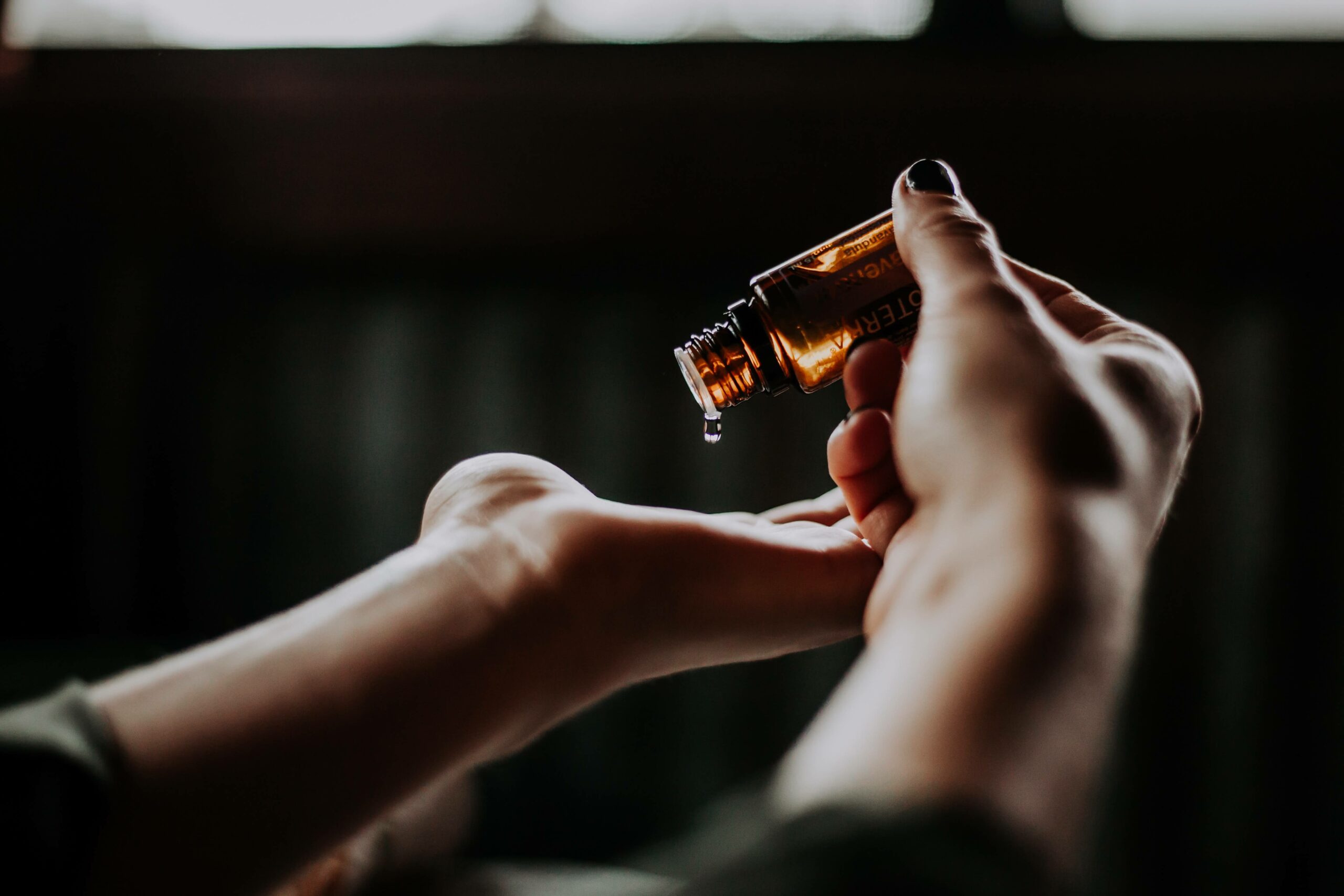Every two years, one kind of skin oil becomes all the rage. It gets talked about, written about and everyone is busy trying it. However, oils for skin are like clothes: there is no one size that fits all.
All of us have different skin types refined further by the state of our individual health so today we want to talk to you about the best skin oils for your skin.
There are 4 main skin types (normal skin, dry skin, oily skin and combination skin), each of which have differing requirements.
Before we set out on a discussion of oils, it is necessary to point out that skin oils are not the same as essential oils. Essential oils are seldom applied directly to the skin, but skin oils have been created specifically to be applied to the skin.
Since our focus is on the best oils for your skin and not the fad of the moment, we have identified the top natural oils for each skin type.
*Disclaimer: If you have nut or other major allergies, please consult a doctor before using any of the recommended products.
Best Oils for Normal Skin
Normal skin is neither too dry nor oily, it is perfectly balanced in oil production.
The biggest indicator of normal skin is that it is not particularly sensitive to surface applications like creams, lotions etc. If you are the proud bearer of normal skin you will know that it may be perfect but it still needs some care.
Jojoba Oil
Jojoba oil is extracted from a hardy, desert dwelling perennial plant that grows in North America. Jojoba oil is extracted from the nut of the jojoba plant and is light enough to be used as a carrier oil or on its own.
Jojoba oil is moisturizing without clogging your pores because its composition is so similar to the skin’s natural oil (sebum) that the skin cannot tell the difference.
This similarity with sebum combined with its antimicrobial and antioxidant properties can enable jojoba oil to keep acne at bay.
Try one of these three by facetheory, Typology or Baja Basics to identify which one works best for you!
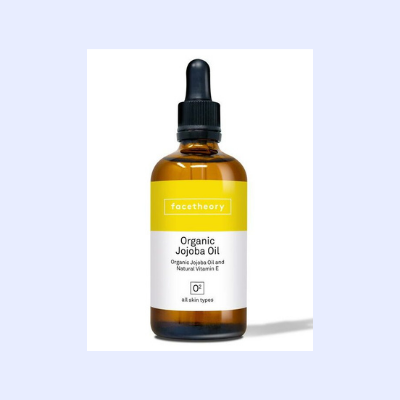
Marula Oil
Even if you have never heard of Marula oil, you’ve come across it before. Marula oil is used as a base note in perfumes, body lotions and soaps. It is extracted from the seed of the Marula fruit and contains amino acids, fatty acids and antioxidants.
Being as light as jojoba oil, it makes a great lightweight, easy to absorb moisturizer for normal skin.
Antioxidants present in Marula oil serve as a deterrent for acne and even help with minor irritations. If this oil helps ease your faint fine lines and wrinkles you can thank us later!
Our top 3 picks are from The Ordinary, African Botanics and Drunk Elephant.

Best Oils for Dry Skin
Dry skin produces less sebum (natural skin oil) than normal skin, hence it struggles to retain moisture like normal skin. It lacks natural moisturizing factors and epidermal lipids which are needed for a healthy skin barrier function.
It may sound fantastic to those with oily skin, but really, it is much harder to maintain dry skin as lines and wrinkles develop much earlier in life. So, if you have been blessed with dry skin, you can count on these oils to help nourish it:
Apricot Kernel Oil
Apricot kernel oil is one of those lesser talked about miracle oils, which is just packed with goodness like vitamins E and K and a number of powerful antioxidants.
Dry skin does not have the ability to hold moisture, thus also lacking in a protective film on the skin. Because of this, the emollient properties of apricot kernel oil are super helpful as they help seal the moisture in the skin.
The linoleic acid (or omega-6) content within apricot oil strengthens the skin’s barrier and oleic acid (or omega-9) content softens the skin, making it the ultimate skin softener and protector for dry skin.
Try these apricot oils from Maker + Merchant and NOW Solutions for best results.

Almond Oil
When I was growing up, my mother made me eat 5 almonds first thing every morning so they would make me smarter. When my hair got too dry, she gave me an almond oil massage and I was instructed to use almond oil on my feet every night.
Almond oil, apart from its obvious moisturizing properties, also improves the complexion and skin tone along with reversing sun damage. Ancient Chinese and Ayurvedic medicine attribute the reduction of scarring to almond oil as well.
If you have dry skin, this one oil may be the answer for your skin, scalp, body, everything. Bonus tip, it’s a great makeup remover too!
Grab some of our favorites at Allpa Botanics, L’Occitane or Ulta.
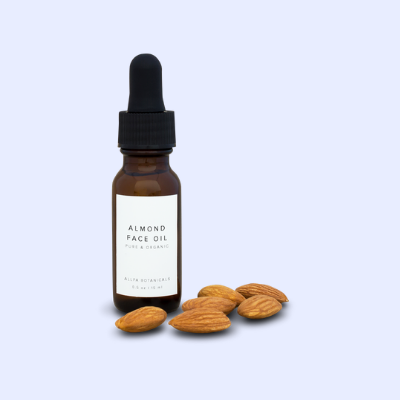
Best Oils for Oily Skin
So far, we have only spoken about oils to moisturize the skin, now we are switching to oils that help do the opposite.
In fact, what we are discussing here will sound like an oxymoron, since the word “oil” itself implies adding moisture.
Oily skin is one that produces excess sebum and projects the appearance of enlarged pores. This skin type is prone to blackheads and whiteheads and can feel bumpy to touch.
What it needs most is oils that reduce sebum production so as to prevent breakouts. Our top picks for oily skin are:
RELATED: 13 Best Setting Sprays for Oily Skin
Tea Tree Oil
If I was forced to choose one item from my routine that I cannot live without, it would be tea tree oil.
Tea tree oil is most talked about with regards to its role in the reduction of acne. This is on account of tea tree oil containing terpene which targets acne causing bacteria thus reducing fresh breakouts.
It also regulates sebum (natural skin oil) production thus shrinking pores and reducing the chances of clogged pores causing further acne.
Tea tree oil, however, should not be applied directly on the skin, it should be mixed with a carrier oil or applied using a cotton ball. It should also not be orally ingested or come in contact with the eyes.
Our top picks are from Body Shop, Public Goods and Trader Joe’s.
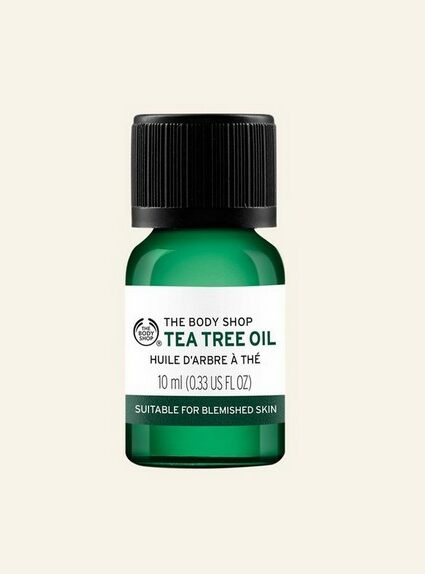
Argan Oil
Although the discussion around Argan oil is always focused on its moisturizing properties, Argan oil is a great choice for oily skin.
It is non comedogenic, which means that it will avoid the clogging of pores whilst creating a thin film on the surface of the skin that seals in the skin’s moisture. Argan oil does not moisturize the skin, it only seals in existing moisture so be sure to hydrate your skin with a light moisturizer before applying Argan oil.
The best ones to use are the 100% Moroccan Argan oils such as Moroccanoil, Josie Maran and Argan Cosmetics.
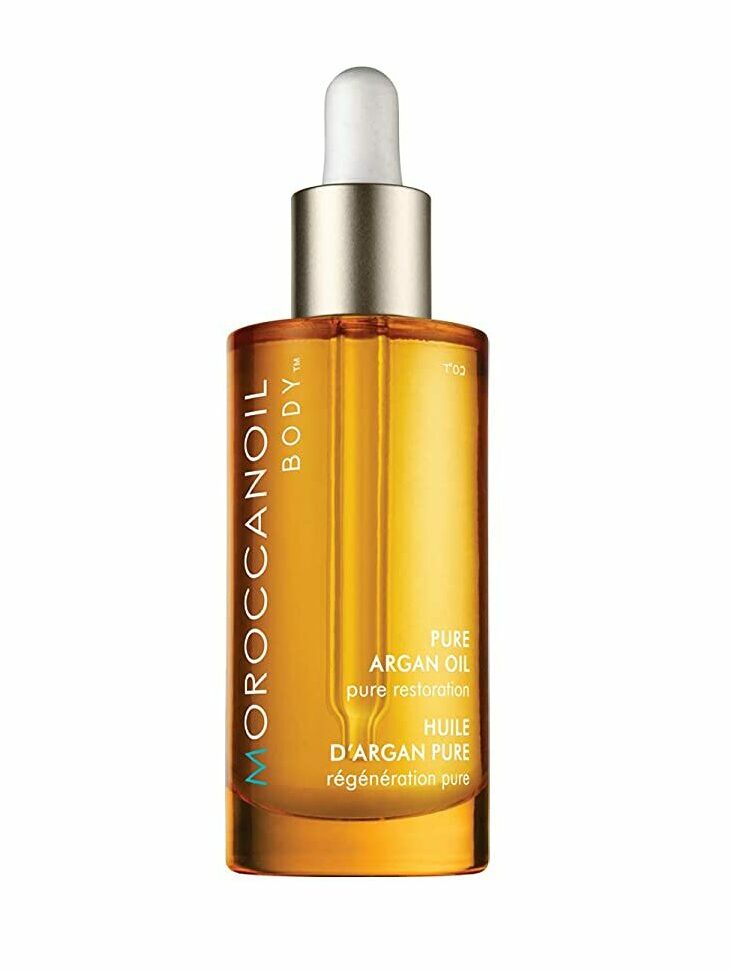
Best Oils for Combination Skin
Combination skin is defined by the infamous T-zone. The T-zone is comprised of the forehead, nose, upper lip and just below the lips.
If you draw a horizontal line on your forehead and a vertical one between your eyes down to your chin, you have the T-zone.
In combination skin, the T-zone tends to be oilier than the rest of the face, which means combination skin has different requirements for different parts of the face.
Combination skin loves:
Flaxseed Oil
For the drier parts of your face, you can safely use flaxseed oil. Flaxseed oil contains omega-3 fatty acids which creates a stronger skin barrier which is less sensitive to irritation.
Flaxseed oil is comedogenic, which means if you have acne-prone skin, you should avoid using it. It contains larger particles and covers the skin like a film creating a bouncy and supple effect.
To elevate the benefits of topical applications of flaxseed, you can have oral flaxseed supplements which will increase the bounciness and hydration of your skin from the inside. This is such a hidden treasure that only Puritan’s Pride makes pure flaxseed oil for facial care.
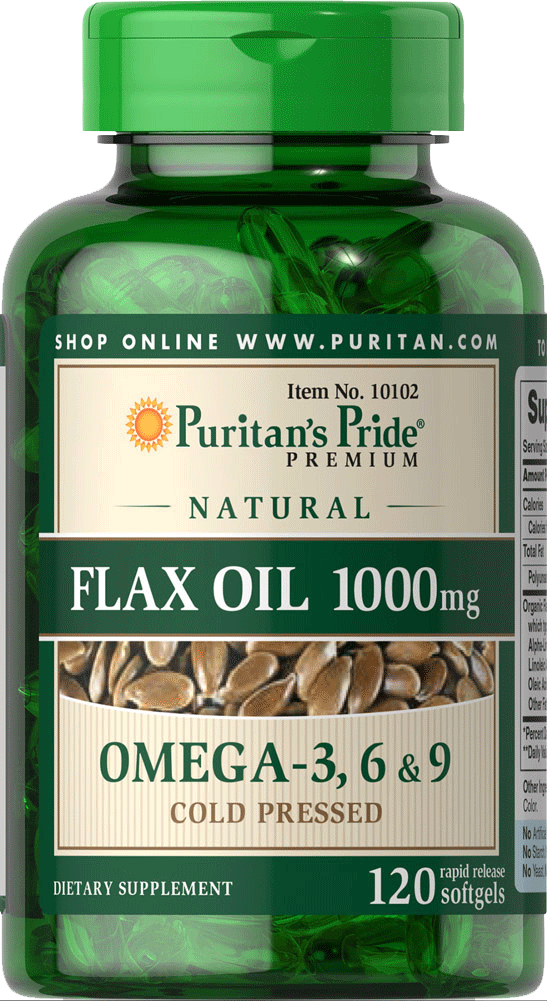
Grapeseed Oil
Grapeseed oil is proof that all good things lead to wine (this oil is a byproduct of the wine-making process)!
It’s high in omega fatty acids and vitamin E, and because of its antimicrobial and anti-inflammatory properties, it is effective against the prevention of acne.
Antioxidants present in grapeseed oil help even out the skin tone and protect the skin against harmful UV rays. For maximum benefit mix grapeseed oil with frankincense and lavender oil for a spa like effect at home.
Try these fantastic grapeseed oils from Allpa Botanicals, Aura Cacia and Honeydew.
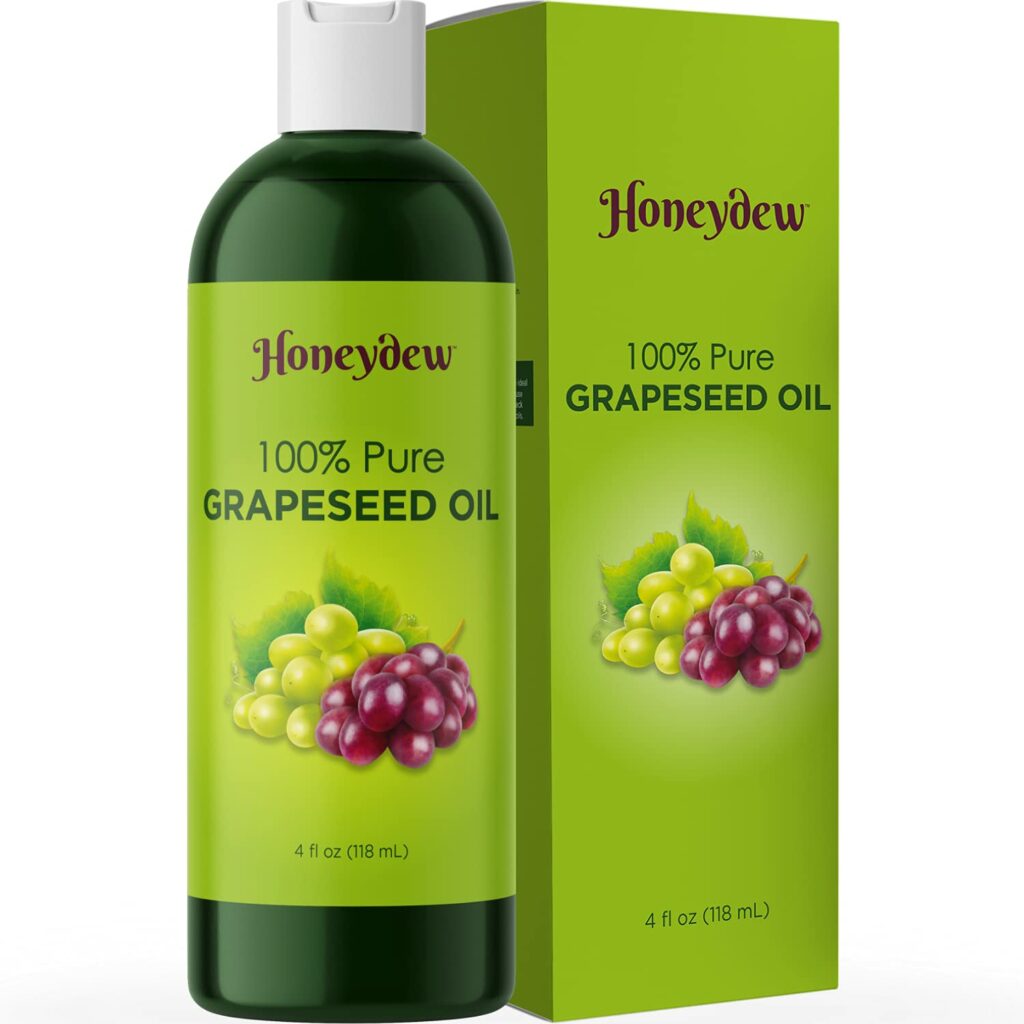
Bottom Line
Before you slather your face with one of these best oils for your skin, proceed with caution.
According to Maya Reeves, licensed esthetician from Massage Heights, a little goes a long way. “Facial oils contain highly concentrated amounts of nutrients and vitamins, so it’s crucial to use only 1-3 drops. Anything more can irritate your skin and cause an unwanted reaction.”
Although we have listed the top oils for skin of every type, it is worth remembering that our skin type evolves as we grow (this can be due to hormones, medication, cosmetics and more).
One needs to be sensitive to any changes displayed by the skin and, if unsure, it is always worth booking an appointment with an esthetician or a dermatologist depending on the severity of the question.
